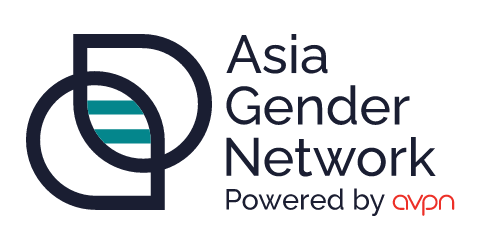Financing is the main topic on the table in the third episode of Gender Agenda. Gender-blind funding and investing is the traditional approach, revealing the need for a gender lens in this area. But even when investing with a gender lens, what exactly should we pay attention to? Our guests this episode — Vidya Shah, CEO of EdelGive Foundation, and Jessica Espinoza, CEO of 2X Global — tackle the issues surrounding philanthropic money and discuss where it actually goes to.
While the case for gender equality has been advanced through charity, diversity, inclusivity and even lauded as a sound financial decision, equity is often left out of the conversation. This is a conversation that needs to move beyond simply calling for more women in the workforce, and towards the need for more women leaders in the economy, government and society.
That is why equity is central to 2X Global’s approach, according to Jessica, where they build it on three strategy pillars. The first one is to build investor capacity and comprises community engagement and peer learning. Through this, investment practitioners can collaborate and co-invest. The second pillar is to advance and further cement 2X’s criteria as a global standard for gender lens investing. With growing use of this criteria worldwide, they are now working with stakeholders to develop a 2X certification mechanism. The third pillar is to shift and shape markets through exciting and innovative initiatives. For example, the Climate Gender Equity Fund which channels philanthropic capital toward solutions at the intersection of gender and climate. The purpose of these three pillars is to offer different ways for people to engage through a gender lens, allowing for a ripple effect across multiple impact goals.
Similarly, Vidya talked about EdelGive’s approach which is also rooted in three pillars: government, society, and markets. Her belief is that in order to see progress, there must be balance across all three — in the pursuit of equity, these pillars serve as a guiding principle to ask if women and all genders have the chance to participate fully in them. This means not resting on one’s laurels at achievements such as increased school enrollment rates. Instead, it involves looking deeper into the issue to understand the barriers that hinder girls from attending school. Whether it’s safety, sanitation, or classroom management for mixed schools, these become the issues of focus to ensure attending school is sustainable for girls. This holistic view forms the core of EdelGive’s focus on education, climate, and agriculture.
It is this intentionality that Jessica feels is critical to the progress of gender equality — and it is intentionality that drives 2X’s bid to embed governance and accountability as part of their criteria. Jessica then shared about 2X’s other efforts focusing on gender and broader justice. These include a toolkit on Justice, Equity, Diversity and Inclusion (JEDI) investing, and a 2X framework that focuses on gender intersectionality in different local contexts. Vidya adopts the same view, sharing that EdelGive operates by a set of guiding principles that transcend personal bias and prejudices.
Intentionality is also about putting women and beneficiaries at the centre of the work. Vidya elaborated on this, citing a Mumbai-based organisation called The Right To Pee. Aimed at championing women’s access to public loos, they soon realised the biggest hurdle was helping men with decision-making power understand the privacy and safety issues for women. This merely affirms a belief held by the women Vidya has spoken to about the state of leadership today: “it’s large, it’s male, it’s aggressive”. She concluded that this is why it’s important to co-create with women and “put the people we really want to help at the centre of everything”.
Listen to the full episode and check out Gender Agenda on Spotify and Apple Podcasts.


